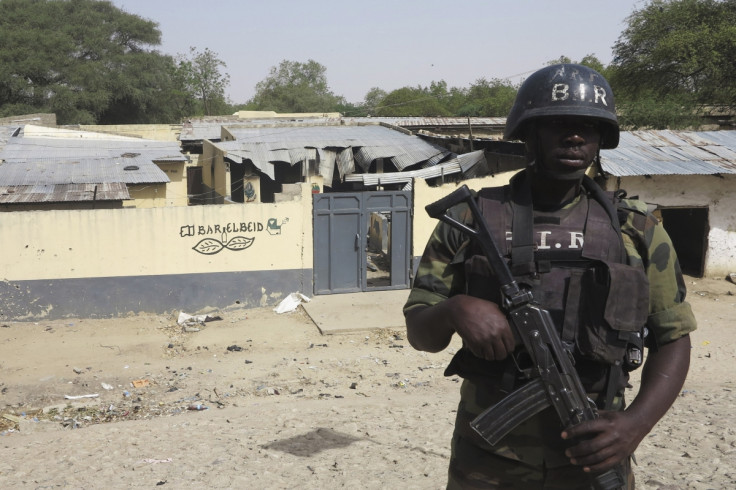Boko Haram suicide bombing kills 10 in Cameroon

At least 10 people have been killed in a suicide bombing in northern Cameroon. The attack took place at 5.40am local time (4.40am GMT) on 13 January and has been linked to Islamist militant group Boko Haram.
"The suicide attack took place at...a mosque at Kouyape. There were 13 deaths including the man who blew himself up and one wounded," an official that did not wish to be identified told Reuters. Another official said that 10 people had died in the explosion.
IBTimes UK contacted the Cameroon embassy in London which could not confirm details of the attack as they have not received official information.
Boko Haram, also known as Iswap, has waged a bloody six-year campaign in northern Nigeria in a bid to establish a caliphate in the country. Iswap is the world's deadliest terrorist organisation according to the Global Terrorism Index 2015, having killed over 17,000 people and displaced tens of thousands.
Who are Nigeria's Boko Haram terrorists?
Boko Haram (renamed Iswap) fights against Western influence in Nigeria and aims to impose its version of Sharia law throughout occupied territories.
Boko Haram carries out attacks in Nigeria and neighbouring countries in a bid to take control of more territory. Three Nigerian states − Adamawa, Borno and Yobe − have been under a state of emergency since May 2013.
Boko Haram has killed between 17,000 and 20,000 people since 2009 and was deemed the world's deadliest terror group, surpassing its ally the Islamic State (Isis), in November. Nigeria has become the world's third most terrorised country as a result of the group's violent insurgency.
The organisation has frequently targeted neighbouring Cameroon, Chad and Niger and often uses women and young girls to carry out terrorist attacks.
Between 2000 and 2013, Cameroon had no recorded deaths as a result of terrorism, but recorded 530 fatalities in 2014, according to a Global Terrorism Index report. Cameroon is part of an 8,700-strong regional alliance led by Nigeria to defeat Boko Haram.
In December, Nigerian President Muhammadu Buhari said that Abuja has "technically won the war" against Boko Haram and said the group's remaining strength was concentrated in Borno state as it is no longer able to conduct "conventional attacks".
The claim was repeated by Buhari's representative, Vice President Yemi Osinbajo, at the Inter-Denominational Church Service on 11 January. Speaking at the service, Osinbajo said: "Boko Haram and insurgency in the north-east has now been degraded militarily; the insurgents no longer hold territory and can no longer launch military style attacks as they had done in the past.''
© Copyright IBTimes 2025. All rights reserved.




















